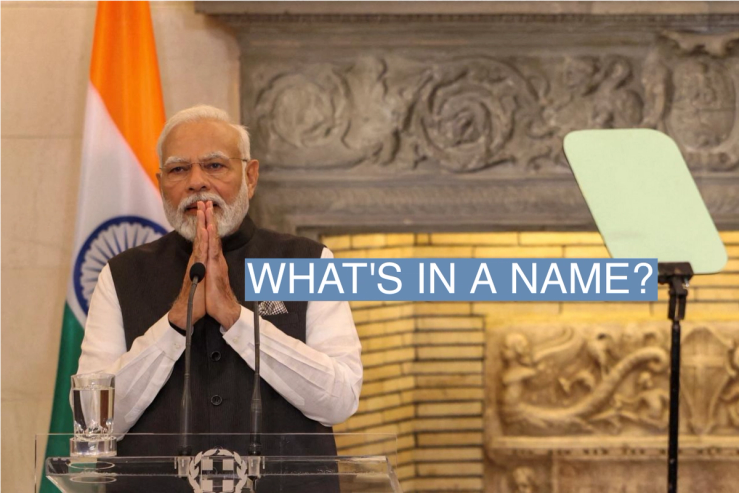The News
Prime Minister Narendra Modi’s government replaced India with “Bharat” on the official dinner invites for the G20 summit — sparking outrage amongst opposition leaders and critics.
Bharat — a Sanskrit word — is the Hindi term for India. The country is referred to by both names, but India is the most commonly used.
Modi’s government has discussed changing the name of India, which they claim is a name that symbolizes colonial slavery.
SIGNALS
Prominent Indian journalists argued that India and Bharat have historically been used interchangeably• 1 , including in the Indian constitution which declares: “India, that is Bharat, shall be a Union of States.” Shiv Aroor, an India Today anchor, said that India will likely not be renamed because “there’s nothing to rename… India and Bharat both coexist in the foundational document of our republic.• 2 ” He suggested that this may be part of the Modi government’s ongoing efforts to popularize the word “Bharat” in keeping with its track record of “removing colonial vestiges and amplifying India’s civilizational roots.” Some journalists argued against changing the name, with the former editor of Hindu calling it an “unwise” move that would hamper India's growing respect and credibility as a global power.• 3
Speculation has swirled• 4 that the move is a dig against India’s opposition coalition which calls itself I.N.D.I.A or the Indian National Developmental Inclusive Alliance. Modi's Bharatiya Janata Party (BJP) has previously criticized the opposition bloc by saying that "India" a vestige of the country's colonial past and calling for its removal from the Constitution. Opposition leaders slammed the idea of changing the name to "Bharat" with Delhi's chief minister Arvind Kejriwal saying, "The country belongs to [1.4 billion] people, not to one party. If the name of the alliance is changed to Bharat, will they change the name of Bharat to BJP?"
Language identity is the most common basis for nationalism• 5 , writes Shoaib Daniyal of The India Fix newsletter. This has played on and off in Indian politics since the country gained independence in 1947 with competing parties pushing for or against the three names of the country: India, Bharat, and Hindustan. In the 1990s, a wide swath of Indian cities had their colonial names replaced by local language names. Renaming as a way to assert nationalism has also been common in neighboring countries such as Myanmar (formerly Burma) and Sri Lanka (formerly Ceylon), Daniyal writes.
The India Fix, A Short History of ‘India’ versus ‘Bharat’
Renaming the country could come at a cost — nearly $1.7 billion — Outlook India estimated, using a calculation devised by a lawyer during the name change of Swaziland to Eswatini• 6 . The costs could include updating maps, navigation systems, highway landmarks, and official documents across state and civic departments. The government spends close to that amount every month on a program to feed 800 million Indians, Outlook reported. A name change for such a vast country like India would also require cooperation from local and state governments, likely taking years before the switch is fully implemented. It took 40 years for neighboring Sri Lanka to eliminate its former name of Ceylon from all government use.


